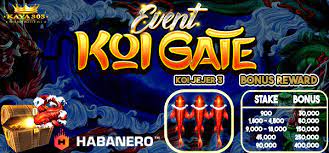Togel, short for indotogel (Indonesian for “dark lottery”), is a popular numbers-based gambling game that originated in Southeast Asia, particularly in Indonesia, Singapore, and Malaysia. Though often associated with informal betting, its roots reveal a complex mix of mathematics, superstition, and cultural tradition.
A Brief History
Togel’s origins can be traced back to local adaptations of government lotteries introduced during the colonial era. Over time, it evolved into a more underground or community-based system. The name “toto gelap” itself implies secrecy — reflecting its unofficial nature and the restrictions placed on gambling in many countries.
In the 1960s and 1970s, when the game began spreading in urban centers, players relied on local bookies or agents to place their bets. The game was often inspired by the dream-interpretation tradition: players would translate symbols or events from their dreams into numbers, believing that these numbers could bring luck in the next draw.
How Togel Works
The basic idea of togel is simple — players choose a combination of numbers, usually consisting of two, three, or four digits (commonly referred to as 2D, 3D, and 4D). Winning depends on how accurately the chosen numbers match the drawn results. While the odds of winning are low, the potential payouts are high, attracting many participants who enjoy both the thrill and the challenge of prediction.
Many modern variations exist, often influenced by local preferences or online platforms. Some togel systems now use official lottery results from countries like Singapore or Hong Kong to determine outcomes, adding a sense of legitimacy and transparency compared to older underground versions.
Cultural Significance
Togel isn’t just a game — it’s also a reflection of local beliefs and traditions. The practice of using numerology, spiritual interpretation, and dream analysis to select numbers remains widespread. In some communities, people consult spiritual guides or interpret symbolic events, such as the appearance of animals or objects in dreams, to determine lucky numbers.
This connection between chance, faith, and intuition gives togel a distinct cultural identity that sets it apart from Western lotteries.
Modern Developments and Legal Issues
Today, togel has shifted significantly toward digital platforms. Online togel websites and mobile apps have made participation easier, especially in regions where physical betting is restricted. However, this also raises concerns about regulation, security, and responsible gambling.
Many governments have outlawed unlicensed togel operations, emphasizing consumer protection and prevention of gambling addiction. Legal alternatives, such as state-run lotteries, are often promoted as safer and more transparent options.
Conclusion
Togel remains an enduring part of Southeast Asian popular culture — a blend of tradition, superstition, and modern technology. While it continues to attract millions of enthusiasts, it also serves as a reminder of the need for balance between cultural practices and responsible gaming.
